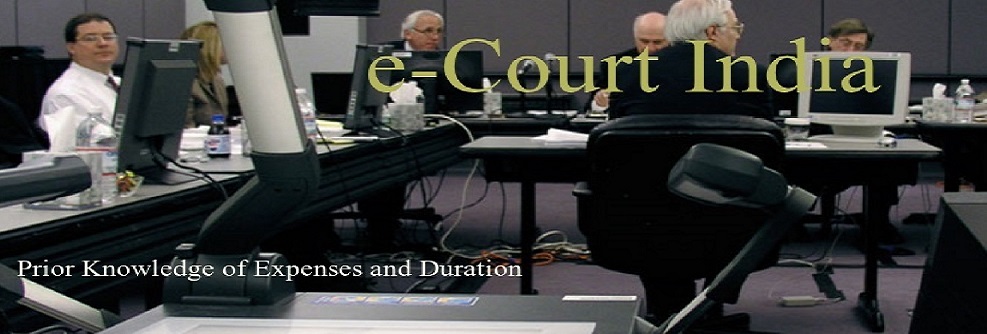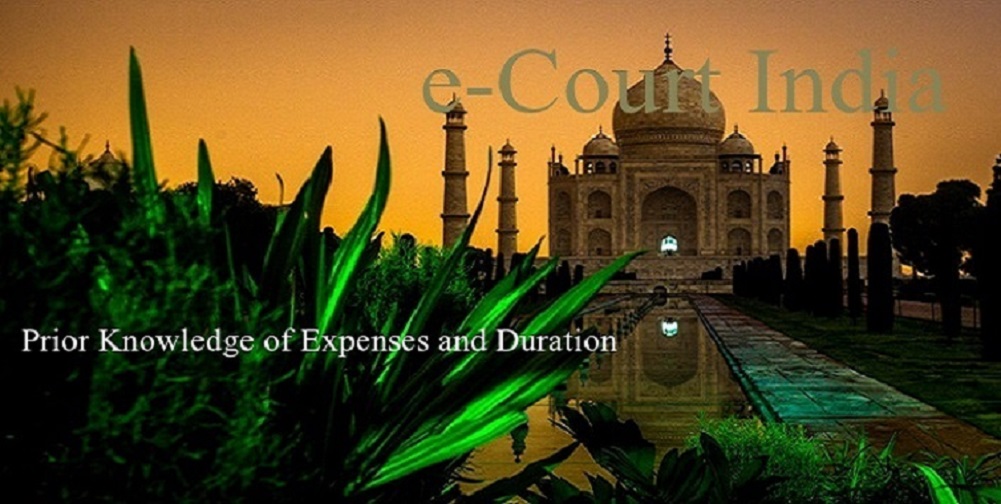(1) e-Court offers arbitration and is meant to function where
mediation is not anymore possible. ADR offers a scala of related
services without a clear dominant focus on any one particular
area. (2) Arbitration fees of ADR are substantial higher and not fixed
beforehand. Lawyers fees are neither included nor mentioned.
e-Court displays clearly "upfront" all fixed fees in a sample-table.
Therefore with e-Court all parties know exact costs beforehand. ADR
does not clearly display all costs beforehand. (3) e-Court offers a fixed time table - no longer than 6 weeks (
with appeal hearing additional 4 weeks ). ADR states "arguably" 3
months duration but contents on its website are not clear on exact
total process duration. In addition no appeal is possible with
ADR. (4) e-Court relies on the use of Internet and makes the dossiers
accessible to the parties at any time during the proceedings. Input
and further uploads to the dossiers
are entirely via Internet. Furthermore it is emphasized that
e-Court eliminates all delays and inefficiencies in its
proceedings. Its costs comes further down through automatic alerts
& information via e-mail. e-Court's motto: "The time an
experienced expert arbitrator should spend on your case, is pure
thinking, not paperwork" . This saves costs. ADR on the otherhand
appears not to utilize Internet to the same degree as e-Court as a
basis of its total approach. (5) e-Court occupies modest but highly functional office
premises. These days conducting affairs utilizing where possible
high technologies, such as the internet is "inn". Hence e-Court
does not occupy fancy expensive office overhead which costs in the
end need to be born by the client. ADR on the other hand operates
with imposing office
overhead, which partially explains the much
higher total costs to their clients. (6) Contesting parties using e-Court may include an oral hearing
during the standard proceedings, if they so wish but this is not
mandatory. It is obvious that time and additional costs for all
concerned are saved when there is no formal oral hearing. ADR
ordinarily insist on an oral hearing to take place within two
months of the appointment of the arbitrator. (7) e-Court allows for an appeal process ( and under arbitration
by a different arbitrator ). With ADR the arbitration award is final and
not open to further appeal. (8) e-Court allows hearings to take place across the
nation. ADR uses its facilities in Toronto. (9) e-Court offers registered professionals membership
in e-Court with entitlement to many benefits. At all times e-Court
provides full transparency of affairs to its members and
non-members. In contrast ADR does not offer membership and neither
it is clear whether ADR offers non stakeholders full
transparency. (10) e-Court operates with its own e-Court internet based
software in Canada,
the USA ,the UK, and India. This will benefit dispute
settlement within NAFTA and with parties in the UK. ADR on the
other hand states it operates internationally out of Toronto but
does mention its services offer Internet interface. Because e-Court
has inhouse internet programming knowledge & related equipment
it can be extremely effective, regardless of distance. c-Court operates and maintains a large number of proprietary
related domains. Similarly it operates
social networking blogs via Twitter, Facebook and Google
Buzz and LinkedIn. (11) What is in the name ? e-Court is registered and operates
with a distinctive name. Its charter is one which is not
self-serving but aims to provide competent, affordable, speedy and
fully transparent justice for everyone. ADR's name ( ADR chambers )
is not self evident what it stands for. With extensive media
attention e-Court may well become Canada's leading & known
private litigation entity offering speedy cost-effective
adversarial dispute resolution. (12) e-Court by virtue of its innovative reliance on "complete"
Internet security uses an extensive set of security measures
among which All data traffic between your PC and the servers of
e-Court is encrypted using SSL encryption technology (2048 bit RSA
encryption). This means that all information on the Internet (such
as passwords and financial data) are protected by "intercepting the
traffic on the Internet." It is not evident that ADR has invested
enhanced internet security in its operations. Their websites do not
display the adress bar with SSL security like e-court. (13) When e-Court hearings are being held and only with
agreement by all involved parties, a video conference is set up
using Skype
between all offices wherever they are in the world with all video
calls being free. With ADR the video conference costs are
particularly heavy. The website states : "The cost for eVideo
Mediation within North America is $250 per day per remote user (in
addition to the mediator's regular fee for the day). (If everyone
is in the same room except for one person, that is one remote
user.) The cost for international users will vary depending on the
location of each user." Furthermore, it is not clear if ADR allows
video conferencing during arbitration hearings. (14) e-Court incorporates in its costs a "refundable" escrow for
purposes to increase effective enforcement of its decision. ADR
stops any involvement after its verdict is rendered. Whilst binding
( as with a verdict by e-Court ) ADR appears not offer help to
enforce its decision.
Differences between e-Court and ADR Chambers
(last revision: Nov20 2010)

-
TOPICS:
- ABOUT e-COURT
- home
- preliminary information
- introduction ( About us )
- benefits
- scope of legal areas
- directorate
- supervisory board
- advisory council
- originating partners
- e-Court & ADRpartners
- articles of operation
- privacy
- legal information
- copyright
- in the news
- ( e-Court VERSUS ADR )
- costs
- frequently asked questions
- OFFLINE NETWORKING
Endorsements ( 1/2000 + ):
- Miller Thomson LLP
Gerald Chipeur, QC, Partner Calgary, Alberta - Adair
Morse LLP
John Adair, Toronto, Canada Area Law Practice - Bart
Law
Jaqueline Bart, Canadian Immigration Law - Clancy P.C. & Brion Raffoul
Paula Clancy, Managing Attorney at Clancy P.C.& Brion Raffoul, Ottawa Legal Services - FreemanLaw -
Barristers
Derek Freeman, Toronto, Ontario, Law Practice - Abrams &
Krochak-Lawyers
Toronto, Ontario, Law Practice - Ennis Milne - Barristers & Solicitors
Toronto, Ontario, Law Practice - Partner,
Gilbertson Davis Emerson LLP
Past President, Ontario Bar Association - George A.
Bougadis
Toronto, Ontario, Canada Law Practice - Rick
B
Calgary, Canada Area Industry Law Practice -
Patrick Cormier
Canadian Centre for Court Technology Montreal, Quebec, Canada - Jonathon Baker
Toronto, Canada Area Law Practtration - Leo Adler
Osgoode Hall Law School - Steven Bookman
Osgoode Hall Law School - Mark Epstein
Senior Partner, Vancouver, Legal Area Law Practice - Wendy Ponka
CEO, International Institute for Transcribers and Court Reporters, Toronto - Kimberley A. Neeson
President, Court Reporters & Arbitration, Toronto - ( Endorsements continued.....)















